Southeastern Iran's Sunni Prayer Hall Demolished
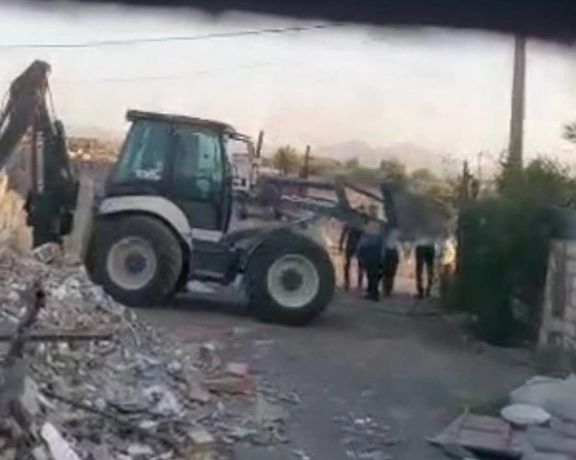
Security forces have destroyed the last remaining Sunni prayer hall in Bam, Kerman province, according to rights group Haalvsh, amid worsening oppression of minorities by Iran's Shia government.

Security forces have destroyed the last remaining Sunni prayer hall in Bam, Kerman province, according to rights group Haalvsh, amid worsening oppression of minorities by Iran's Shia government.
On Monday, Haalvsh published a video showing the hall's ruins and reported that the prayer hall was destroyed at dawn on Saturday by the military along with municipality officials.
“This was a shed constructed to serve as a prayer hall for Sunni citizens because they did not have permission to construct a mosque in the city,” the report said, Sunnis not offered the same privileges as the ruling Shia Muslims in Iran. “In order not to offend, no loudspeakers were used during prayer time.”
Sunnis constitute at least 10 percent of Iran's 88 million population, the majority of them economically and politically disenfranchised and concentrated in border regions stretching from Sistan-Baluchestan in the southeast to Kurdistan in the northwest.
Iran's leading Sunni cleric, Mowlavi Abdolhamid, an outspoken critic of the Iranian government, has frequently accused the government of persecuting religious minorities which also include Baha'i and Zoroastrian communities.
Since September 2022, Iran's southeastern Sunni region has been under strict security control as protests persist after the day now known as Bloody Friday. Security forces opened fire on protesters in Zahedan in Sistan-Baluchestan, killing nearly 90 people, including women and children. Since then, local Sunnis have protested every week after Friday prayers calling for justice as the government fails to be held to account.
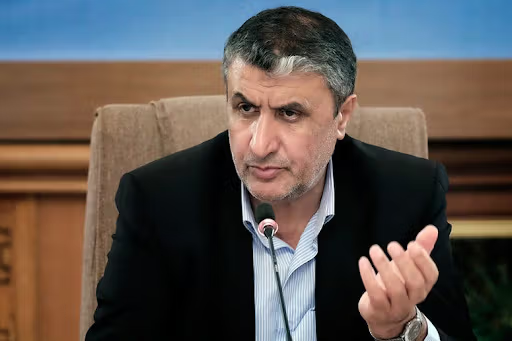
Iran’s nuclear chief says the country is adhering to the Nuclear Non-Proliferation Treaty (NPT) agreements, but is “in the process of reducing its nuclear obligations from the 2015 agreement."
Mohammad Eslami maintained Tehran is still following the NPT Safeguards Agreement and is only reducing the obligations it had under the 2015 nuclear deal, known as the Joint Comprehensive Plan of Action (JCPOA).
The comments come as Britain, France, and Germany submitted a resolution to the United Nations nuclear watchdog’s Board of Governors Monday censuring Iran. According to AFP, European diplomats cited Iran's lack of cooperation with the agency, believing Iran is developing nuclear weapons.
Before the resolution, Iranian officials cautioned European powers against applying pressure on Iran concerning its nuclear program. Ali Shamkhani, a senior advisor to Supreme Leader Ali Khamenei and the reported head of Iran's nuclear negotiations, asserted on Saturday that if European countries proceed with a resolution criticizing Iran's nuclear activities, Iran would respond in a "serious and effective manner."
The E3 maintains that Iran has signed and ratified the NPT Safeguards Agreement but has not adhered to its legally binding obligations.
IAEA Chief Rafael Grossi acknowledged on Monday that the agency has lost continuity of knowledge regarding the production of centrifuges, rotors and bellows, heavy water, and uranium as Iran continues to expand its nuclear program.
In response to a question by Iran International’s Ahmad Samadi about the censure resolution by the European countries, Grossi stated that the member countries must express their opinions on the matter and that the Agency is only required to comply with the resolution if it is approved.
In 2018, then-US President Donald Trump withdrew from the 2015 nuclear deal, known as the Joint Comprehensive Plan of Action (JCPOA), arguing that the agreement did not sufficiently prevent Tehran from acquiring a nuclear weapon. Consequently, sanctions reliefs were revoked.
In 2020, the Iranian parliament suspended UN inspections of Iran's nuclear facilities and mandated the government to increase uranium enrichment if European signatories to the 2015 nuclear deal did not lift oil and banking sanctions.
Despite Iran's lack of cooperation with the IAEA on multiple issues since 2020, friction points between Tehran and the agency have recently accumulated.
The Iranian government has deactivated surveillance devices, denied senior inspectors access, and refused to disclose the location of new nuclear facilities, despite insisting that its uranium enrichment is solely for civilian purposes and that it does not intend to develop nuclear weapons.
According to an IAEA benchmark, Iran is enriching uranium to 60% purity, close to the 90% required for weapons-grade material. It has accumulated enough material to be further enriched to produce three nuclear bombs.
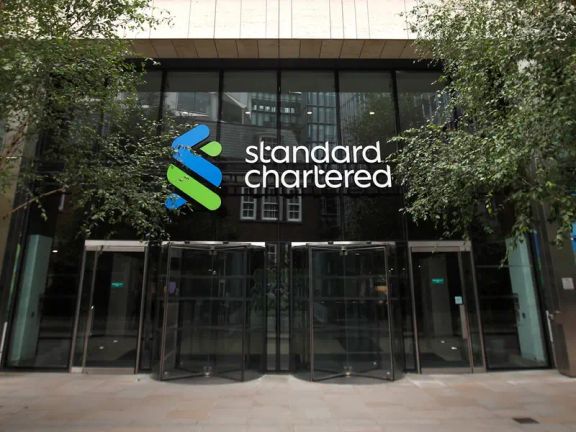
British bank Standard Chartered is accused of facilitating billions of dollars in transactions for funders of terrorist groups such as Hamas and al-Qaeda, according to new US court documents.
Former Standard Chartered executive turned whistleblower Julian Knight claims, according to the International Consortium of Investigative Journalists, that US authorities either overlooked or concealed "damning evidence" of the bank's involvement in "billions of dollars in banking transactions for Iran, numerous international terror groups, and front companies for those groups."
The court documents filed in New York by Knight allege that from 2008 to 2013, Standard Chartered conducted thousands of transactions worth over $100 billion, violating sanctions against Iran.
SCB has admitted to breaching sanctions against Iran and other countries twice, once in 2012 and again in 2019, reportedly paying fines totaling over $1.7 billion. However, according to the BBC, it has not admitted to conducting transactions for “terrorist” organizations.
In 2012, the British bank – one of the country’s oldest – avoided prosecution for money laundering after then-Chancellor George Osborne reportedly intervened secretly. Three months later, the US Department of Justice chose not to prosecute the bank. It is unclear if the British government was aware of these actions then.
Knight contends that the transactions conducted by SCB far exceeded those admitted to during the settlement of the criminal case in 2012, occurring well after the bank claimed to have ceased all Iranian operations in 2007.
According to the BBC, an independent expert identified $9.6bn of foreign exchange transactions with individuals and companies designated by the US government as funding “terror groups”, including Hezbollah, Hamas, al-Qaeda, and the Taliban.
The confidential bank spreadsheets that showed the transactions were handed to US authorities in 2012 by Knight and another whistleblower, who both claim that the US government agencies made false statements to a court to have their claim for a whistleblower’s reward dismissed.
Knight has asked the US Federal Court in New York to reinstate his claims, saying that the government had committed a “colossal fraud” on the court by denying he had provided “damning evidence” that the bank facilitated many billions of dollars in banking transactions for Iran.
The whistleblower claims that the US government either falsely stated that it conducted a thorough investigation into his claims or that it knew about the transactions he reported and lied to hide them. Knight believes the government's statements indicate that they were aware of the transactions and chose to conceal this information.
In its report, the BBC said US authorities investigating the bank successfully applied to have their case dismissed in 2019. US authorities argued the whistleblower’s allegations “did not lead to the discovery of any new … violations” and the court dismissed the case as “meritless”.
Standard Chartered has reportedly disputed the claims put forward by the whistleblowers, saying their previous allegations had been “thoroughly discredited” in the US.
An independent expert David Scantling, who reportedly has decades of CIA experience, contradicts this. In a court filing, Scantling says that over half a million "cloaked" transactions by SCB between 2008 and 2013 were easily recognizable using a simple technique, the BBC report said.
Separately, the Times reported earlier this year that SCB helped Iranian petrochemical companies circumvent international sanctions. The bank reportedly facilitated trades between a Chinese company and Iran's Arak Petrochemical and Bandar Imam Petrochemical, both sanctioned by the US, citing leaked transaction data.

A US federal court has found Iran’s government guilty of torturing Iranian dissident journalist Issa Saharkhiz, ordering it to pay $5 million to Saharkhiz’s son, Mehdi, who lives in the US and has filed the lawsuit.
Significant as the ruling is symbolically, it is not expected to benefit the plaintiff financially, since Iran has no assets in the United States and funds may not be recovered from blocked Iranian assets. This has been confirmed by similar rulings in recent years, where individual lawsuits have been filed against the Islamic Republic under the Foreign Sovereign Immunity Act.
Previous cases include that of the late Siamak Pourzand (d. 2011), whose wife and two daughters were awarded $34 million in damages by a US federal court in September 2022, after the judge heard reports of Pourzand’s abduction, detention and torture by the authorities in Iran.
More recently, in September 2023, the two daughters of former diplomat and deputy prime minister, Abbas Amirentezam (d. 2018), were awarded $6.5 million each in damages by a US District Court, after the judge ruled that Iran’s government and the Revolutionary Guard (IRGC) were “liable for torture” of Amirentezam –who served almost 40 years of incarceration and house arrest for “for fabricated charges of espionage”. Amirentezam was the longest-serving political prisoner after the 1979 Revolution in Iran.
All these cases –including that of Issa Saharkhiz– have been defended by Ali Hersichi of Herischi Human Rights Law Center. In his statement following the latest ruling, Herischi said the verdict on Saharkhiz was issued against the Islamic Republic, its Supreme Leader, and the IRGC.
The case took more than three years, according to Herischi, who wrote that the judge affirmed that “Saharkhiz was indeed tortured” in prison. “The court attributed responsibility for this torture to the Islamic Republic of Iran, citing systematic torture practices in its prisons,” Herischi said.
Issa Saharkhiz is a veteran journalist and former official who for five years in the 1990s ran the New York office of Iran’s official news agency (IRNA). He returned to Iran in the late 1990s and took charge of the press department at the Islamic Republic’s Culture Ministry. Saharkhiz was arrested and jailed after Iran’s disputed elections in 2009. He faced further imprisonments in 2015 and 2017, before being released in 2018.
“Throughout his imprisonment, Saharkhiz was subjected to various forms of torture,” according to the statement released by Herischi Human Law Center, “including beatings, denial of medical care, solitary confinement under inhumane conditions, and forced confessions without legal representation.”
The statement calls the ruling an “irrefutable evidence of illegal behavior and torture in Iranian prisons” which may help international courts “to prove the occurrence of torture” in prisons of the Islamic Republic of Iran.
The Iranian government dismisses all such cases and chooses not to have representation in courts.
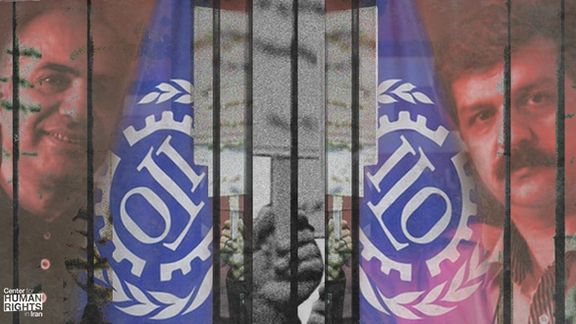
Two imprisoned labor activists have highlighted the ongoing violations of workers' rights in Iran, campaigning for the International Labor Organization to fight the persecution faced by labor unions.
In a joint letter to the International Labor Organization (ILO), Reza Shahabi and Davoud Razavi, held in Tehran's Evin Prison, emphasized the regime's use of arrests, harassment, and imprisonment for advocating workers' rights, as a tool to quash unrest.
“We and many other workers were fired, harassed, and imprisoned because we believed in labor activism and independent labor organizations."
Shahabi and Razavi's letter, released ahead of the 112th Session of the International Labor Conference, said the Iranian labor rights community's calls for international support are being ignored. The letter also detailed the sham charges and prison sentences imposed on Shahabi and Razavi, amid Iran's brutal suppression of dissent.
Last month the Iranian Writers' Association (IWA) called for the unconditional release of all imprisoned workers and labor activists. They pointed out that over 1,600 strikes and protests occurred last year across the country from a range of industries, emphasizing that "such a large number of demonstrations shows both the extent of the looting of the labor force and the rampage by those in power."
Amid the worst recession since the establishment of the Islamic Republic in 1979, the IWA stressed the hardships being faced by workers on low salaries and enduring horrific working conditions as at least one third of Iranians are now living below the poverty line.
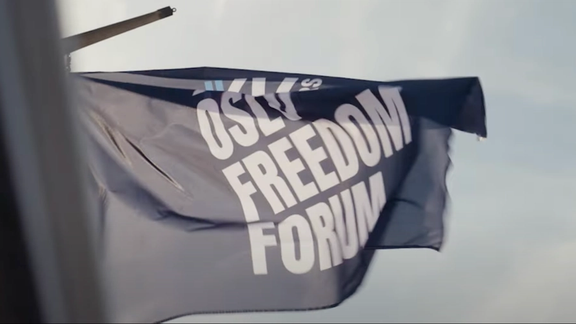
The 16th annual Oslo Freedom Forum (OFF) commenced on Monday, with a session focused on highlighting the plight of Iranian protesters who lost their eyes and showcasing the efforts of Iranian activists campaigning for democracy and human rights.
Organized by the New York-based nonprofit, Human Rights Foundation, the three-day event brings together a diverse array of human rights defenders and civil activists from across the globe with this year’s theme being “reclaiming democracy”.
Since its inception in 2009, the OFF has become a global platform for human rights advocates worldwide to share their efforts in challenging repression, advocating against injustice, and promoting liberal democracy.
Speakers this year include the likes of Venezuelan human rights activist, Olga González, Russian politician and opposition figure, Anastasia Shevchenko, Ugandan journalist and digital activist, Agather Atuhaire, Co-founder of Twitter, and Jack Dorsey amongst other renowned authors and activists from various parts of the globe.
Among the speakers on Monday were Iranian journalist and activist Masih Alinejad and activists Sima Moradbeigi, Kosar Eftekhrai, and Zaniar Tondro — three protestors who were injured during Iran’s nationwide Woman Life Freedom uprising in 2022 sparked by the killing of Mahsa (Zhina) Amini in police custody.
The Iranian Struggle at Center Stage
Iran has been a focal point at the Oslo Freedom Forum for several years, reflecting the ongoing repression and human rights abuses in the country. This year, Masih Alinejad, accompanied by the three injured activists, brought the audience face-to-face with the brutal realities faced by protestors.
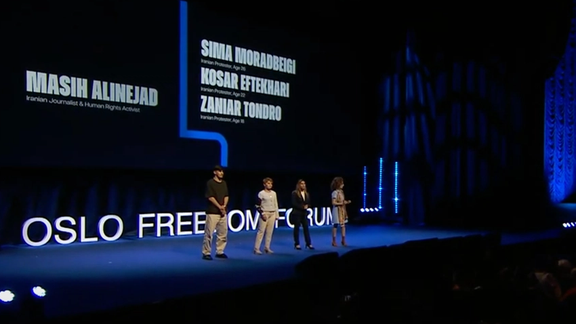
During her speech, Alinejad shared the stage with Moradbeigi, Eftekhari, and Tondro.
“I am here to ask you to pick a side… to call for action to your leaders, the leaders of democratic countries, the policymakers of the free world whether they want to stand with the killers or the freedom fighters… so hear their stories and make your decision…whether you want to be united with the true people who say that there is one solution for peace in the middle east and the solution is revolution,” stated Alinejad.
Moradbeigi spoke about the sacrifices made by Iranian citizens, including leaving her young daughter at home to protest for freedom and a better future.
Eftekhrai detailed the Iranian regime's deliberate targeting of protestors' eyes, urging attendees to empathize with the pain of being blinded.
Speaking to Iran International following their speech, Kosari further shed light on Iranian protestors who lost both of their eyes as a result of being shot at by state security forces during the protests in Iran.
“People like Hossein Naderbeigi, Ali Taouneh, Matin Manani, and Farideh Salavatipour. These are some of the people who the Islamic Republic shot at and blinded both of their eyes for the crime of being a protestor. Despite this, we stand firm until the end…and we will tell the world that the Islamic Republic is a terrorist,” Kosari stated.
Tondro, who lost his right eye at 16 and still has eight pellet bullets in his head, shared his harrowing experience and mentioned his cousin's killing at the hands of the Islamic Revolutionary Guard Corps (IRGC) by being shot at with a DShK machine gun, motivating him to represent the voices of Kolbars - Iranian cross-border porters.
Alinejad emphasized the strength and resilience of these young activists, calling on the international community to support their fight against the Islamic Republic's gender apartheid regime.
Artistic Expression as Resistance
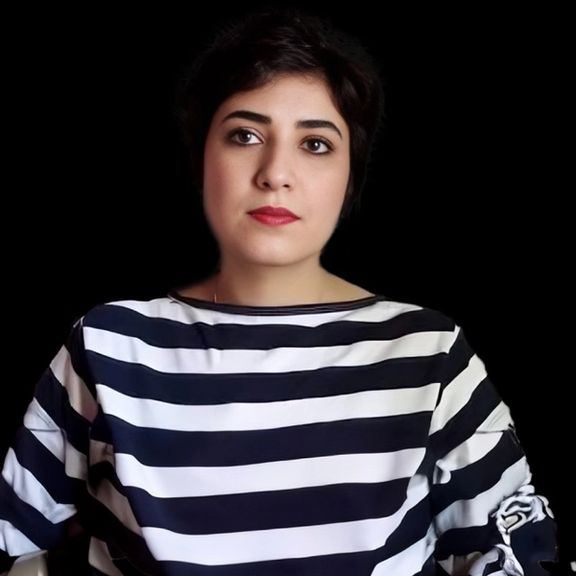
Atena Farghadani, an Iranian cartoonist and human rights activist, work is also at OFF 2024. Her installation, "We Are Products of the Same Factory," celebrated the power of creative expression in the face of repression. Farghadani, who has been arrested and tortured for her critical cartoons of the Iranian regime, received the 2016 Václav Havel International Prize for Creative Dissent.
Havel Prize Honors Imprisoned Iranian Rapper
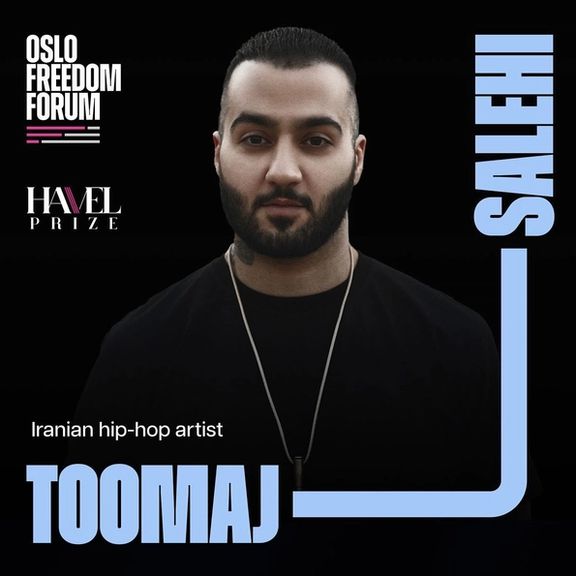
This year, the Václav Havel Prize for Creative Dissent includes Iranian rapper and activist Toomaj Salehi among its winners. Toomaj, known for his powerful lyrics against the Iranian regime, remains imprisoned and faces a death sentence. The prize will be presented to Negin Niknaam, a friend and campaigner for Toomaj's freedom, in his honor on Tuesday.
The Oslo Freedom Forum will continue until Wednesday, June 5.